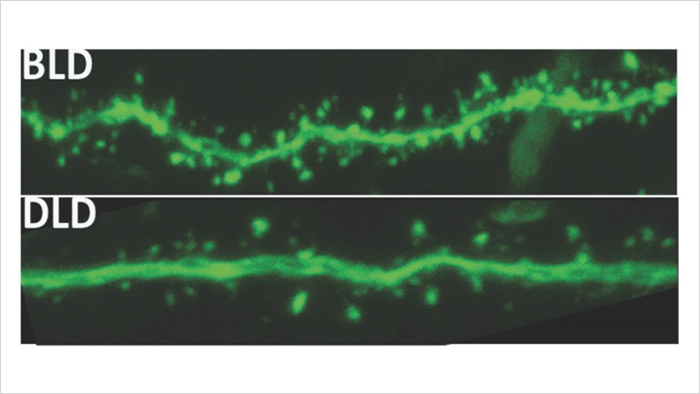
As diurnal beings, light exposure is important. As well as dictating circadian rhythm, it also impacts other processes, such as wakefulness or mood. But does it also affect brain function during tasks? Research from a team of neuroscientists suggests that insufficient exposure to bright light could impact brain structure and function. The group from Michigan State University, East Lansing, USA, studied how bright and dim light affects hippocampal function in Nile grass rats (which are diurnal, like humans) (1). Following four weeks of exposure to dim light, the rats showed cognitive and behavioral changes, including impairments in spatial memory. Furthermore, hippocampal expression of brain-derived neurotrophic factor was reduced, and there was a 30 percent decrease in dendritic connections in the hippocampus (Figure 1). Impairments in functioning and changes in hippocampal structure were reversed after four weeks exposure to bright light.
The authors concluded that light intensity affects cognitive performance and hippocampal structural plasticity. Could these findings have implications for people with ocular diseases, such as glaucoma and retinal degeneration? An ever better question was posed by Lily Yan, the paper’s corresponding author (2): “For people with eye disease, can we bypass the eye and directly manipulate this group of neurons in the brain to provide them with the same benefits of bright light exposure?” Watch this space!
References
- JE Soler et al., “Light modulates hippocampal function and spatial learning in a diurnal rodent species: a study using male nile grass rat (Arvicanthis niloticus)”, Hippocampus, [Epub ahead of print], (2017). PMID: 29251803. Andy Henion. “Does dim light make us dumber?” MSU News. Available at: http://bit.ly/MSU-dim. Accessed: February 14, 2018.
